Creating Interactive Content: Engage Your Audience With Immersive Experiences

Interactive content has become a game-changer in the world of marketing, revolutionizing the way brands engage with their audiences. By creating immersive experiences that captivate and entertain, interactive content goes beyond traditional marketing tactics, forging a deeper connection between brands and consumers.
The power of interactive content lies in its ability to offer unique experiences that appeal to consumers. Take, for instance, The New York Times’ “The Upshot” interactive quiz on political polarization. This quiz not only engaged readers but also provided valuable insights into the topic. By allowing users to actively participate in the content, interactivity enhances user experience and creates memorable brand interactions.
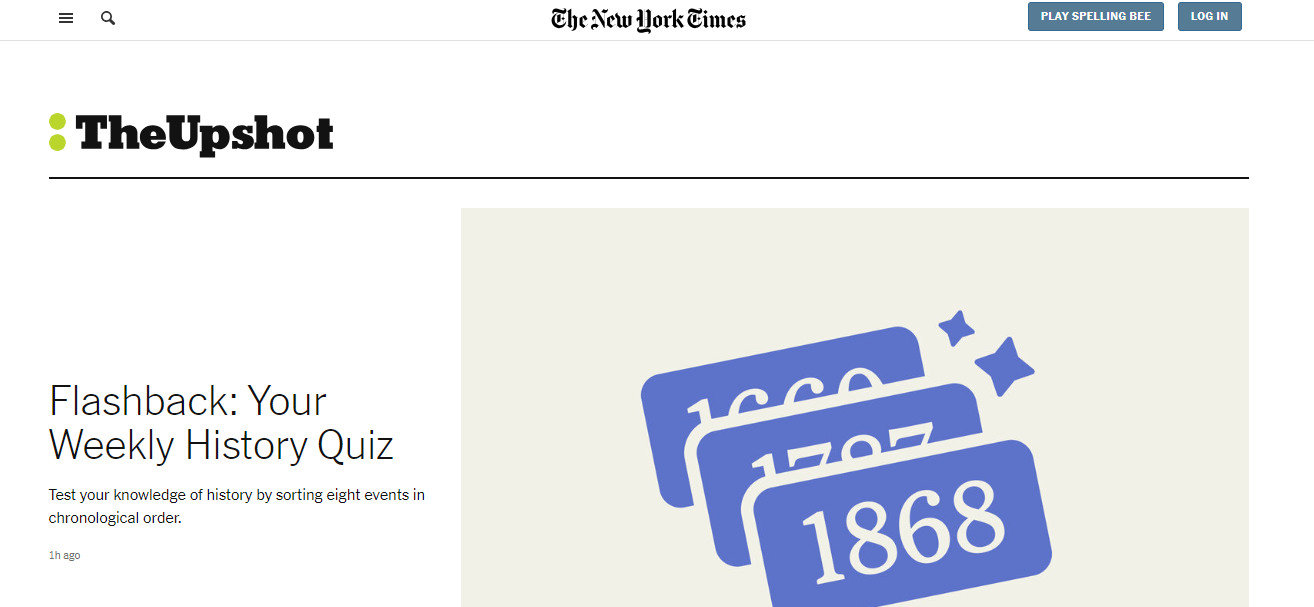
In the digital age where attention spans are dwindling, interactive content stands out as an effective way to capture and retain audience attention. It breaks the monotony of passive consumption by encouraging active participation and decision-making. Through various forms such as quizzes, augmented reality (AR) experiences, interactive videos, and infographics, brands can create dynamic content that educates, entertains, and inspires their target audience. So let’s dive into the different types of interactive content and explore their unique benefits!
The Benefits of Interactive Content
Interactive content offers a plethora of benefits that can greatly enhance your marketing efforts. By creating unique experiences for your audience, you can captivate and engage them in ways that traditional static content cannot. This not only helps establish a deeper connection with your target audience but also drives valuable results.
One prime example of the power of interactive content is Burger King’s “Subservient Chicken” campaign. In this innovative campaign, users were able to control a person dressed as a chicken through online commands. This interactive experience not only created a buzz but also allowed Burger King to engage with its audience in a fun and memorable way.

Interactive content appeals to consumers by offering them something beyond the ordinary. It provides an opportunity for them to actively participate rather than passively consume information.
Moreover, interactivity enhances the user experience by providing a sense of personalization and customization. Through interactive content, brands can tailor their messaging and offerings to suit individual preferences, creating a more relevant and engaging experience. This personalized approach not only resonates with customers but also fosters stronger brand loyalty.
In addition, interactive content generates higher levels of engagement compared to traditional static content. When users are actively involved in the content they consume, they are more likely to spend more time interacting with it and sharing it with others. Quizzes, for example, have proven to be highly shareable as they generate results that users are eager to show off on social media platforms.
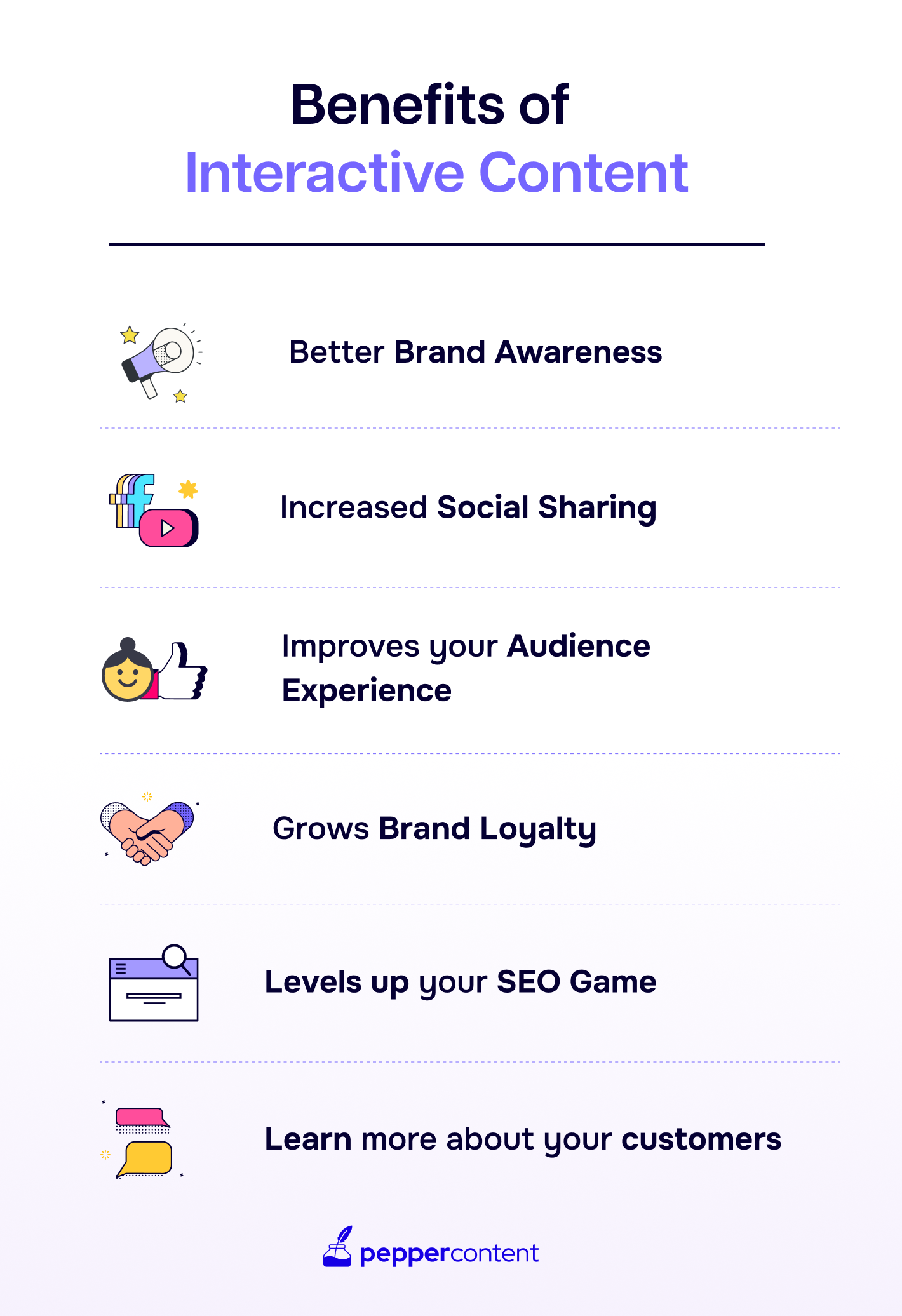
Types of Interactive Content
Interactive content comes in various forms, each offering unique ways to engage and captivate audiences. Let’s dive into some popular types of interactive content that have proven to be highly effective in capturing attention and driving results.
A. Quizzes and Assessments
Quizzes are a fun and interactive way to educate while entertaining your audience. They allow users to actively participate and learn about themselves or a specific topic. Buzzfeed’s “Which Disney Princess Are You?” quiz is a prime example of how quizzes can go viral and increase brand visibility. By generating shareable results and encouraging social sharing, quizzes have the potential to reach a wider audience and foster engagement.
B. Augmented Reality (AR) Experiences
Augmented Reality takes interactivity to a whole new level by providing immersive experiences that bring virtual elements into the real world. IKEA’s “Place” app allows users to virtually place furniture in their homes before purchasing, enabling them to visualize how the products fit their space. This practical value not only enhances consumer decision-making but also drives sales by reducing uncertainty.
C. Interactive Videos
Videos have become an integral part of content marketing, but interactive videos take engagement to the next level. Netflix’s interactive film “Bandersnatch” allowed viewers to choose their adventure, making them active participants in the storytelling process. By personalizing content consumption and increasing viewer engagement, interactive videos create memorable experiences that leave a lasting impact.
D. Infographics and Data Visualizations
Complex information can often be overwhelming for audiences, but interactive infographics and data visualizations simplify the understanding of complex data sets. The Guardian’s interactive infographic on climate change is a powerful example of how these visuals engage readers with compelling data exploration. By allowing users to interact with the information, infographics enhance understanding while encouraging audience interaction.
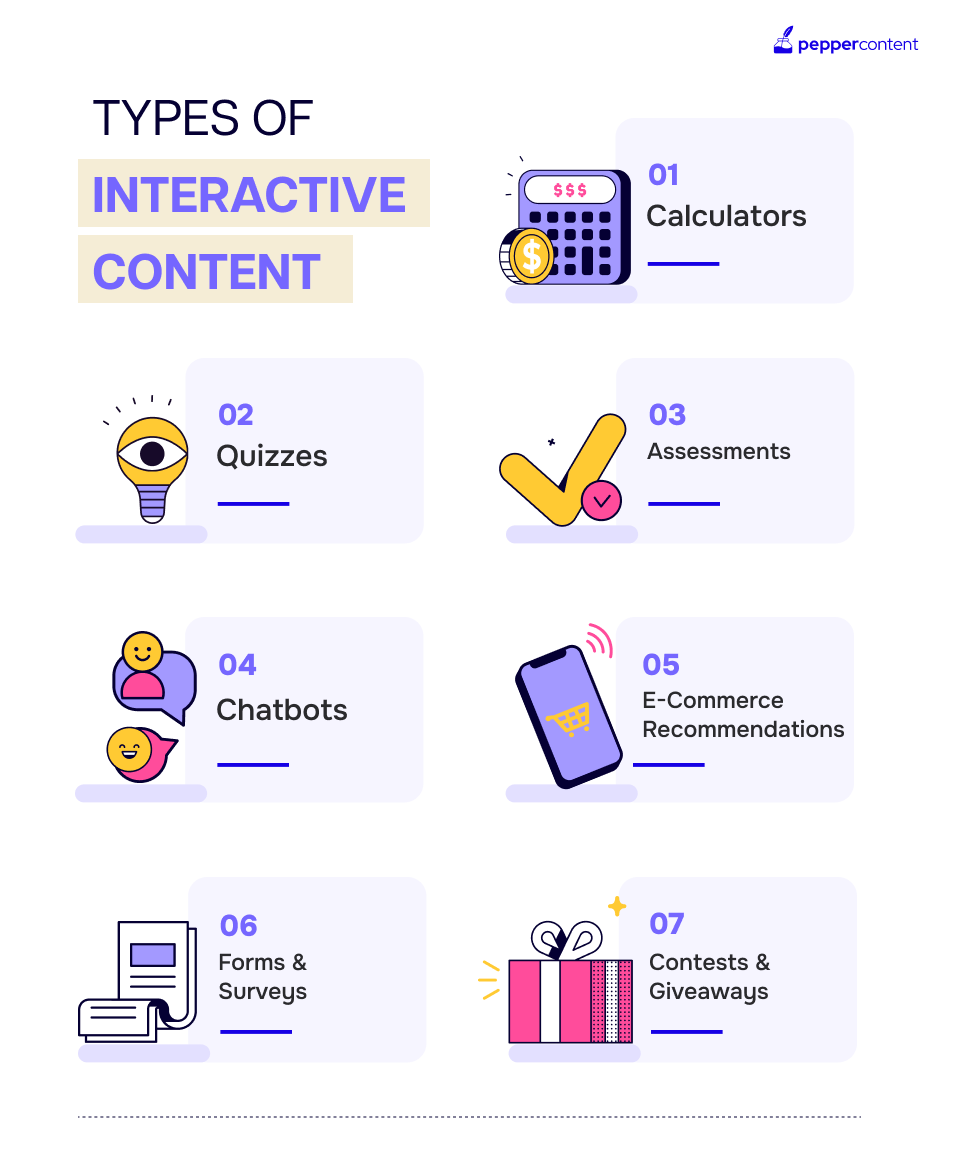
Tools for Creating Interactive Content
How to create interactive content? When it comes to creating interactive content, having the right tools is essential. Lucky for us, there are a plethora of interactive content creation software and platforms available that make the process easy and efficient.
1. Outgrow
One such tool is Outgrow, an interactive content builder that empowers marketers to create quizzes, calculators, assessments, and more. With its user-friendly interface and drag-and-drop functionality, even those without technical expertise can create engaging interactive experiences. Outgrow offers a range of customizable templates and design options to suit different brand aesthetics and campaign goals. Plus, it provides real-time analytics to track user engagement and generate valuable insights.
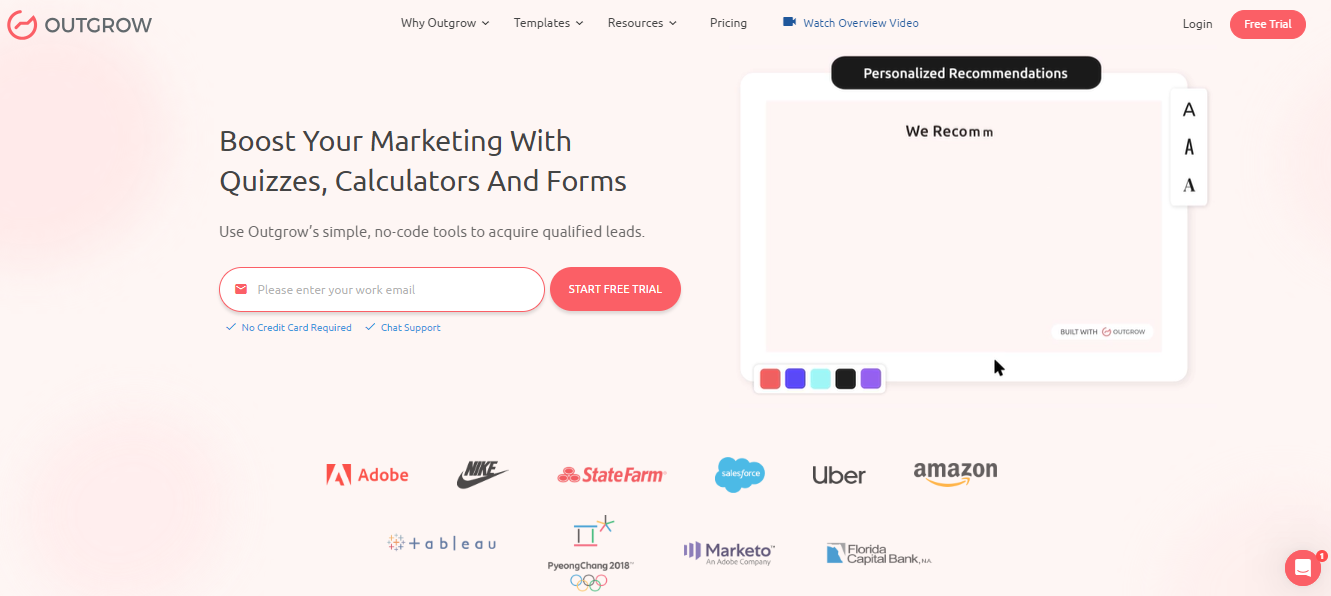
2. Ceros
Another popular platform is Ceros, which allows you to build stunning interactive experiences without writing a single line of code. With its intuitive interface and a vast library of customizable templates, Ceros makes it simple to create captivating interactive content that seamlessly blends visuals, animations, and interactivity. How to create interactive content? Ceros has got you covered.
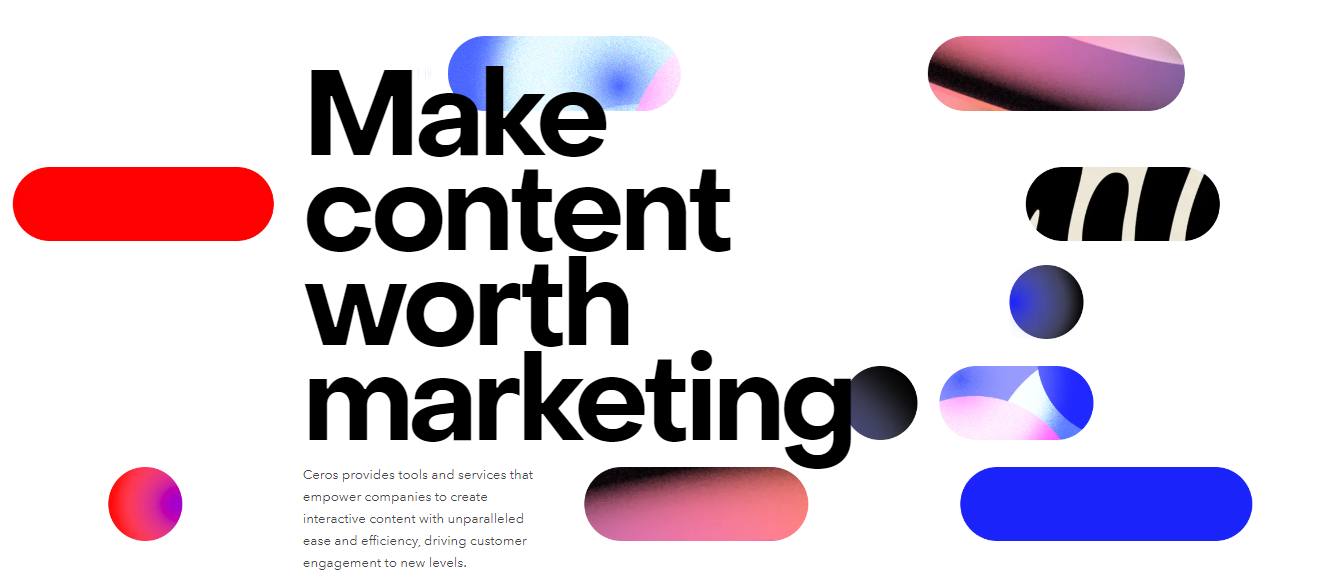
3. H5P
This is an interesting interactive content creation software or tool for those looking for a more advanced solution, there’s H5P. This open-source platform offers a wide variety of interactive content types, including quizzes, presentations, games, and more. It allows users to customize every aspect of their interactive content and even provides integration options with popular learning management systems.
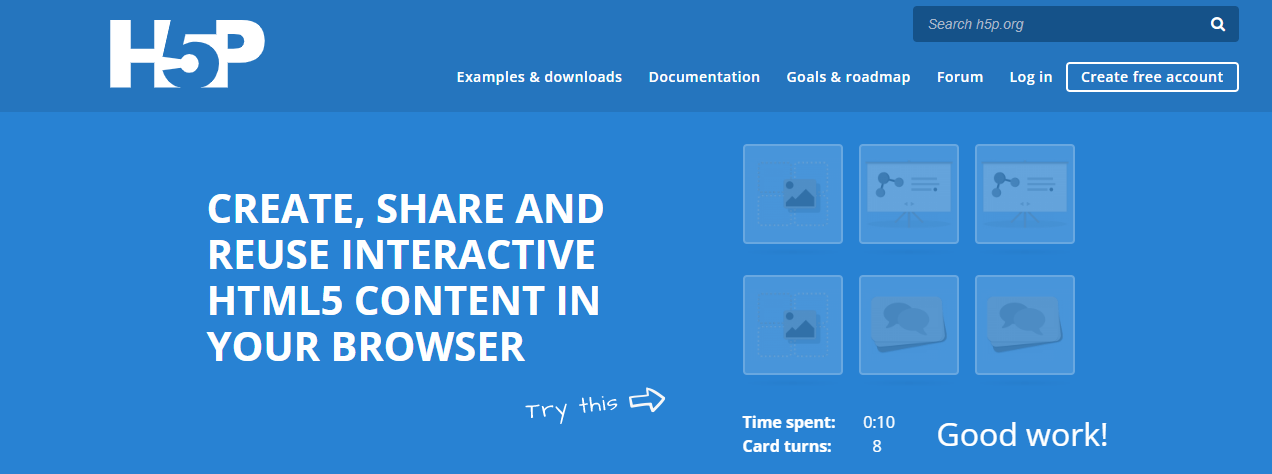
By utilizing these interactive content creation software and tools, marketers can bring their ideas to life and engage their audience in innovative ways. From quizzes that educate while entertaining to calculators that simplify complex decision-making processes, the possibilities are endless.
Tips for Successful Interactive Content Creation
Creating successful interactive content requires careful planning and attention to detail. Here are some tips to help you craft compelling interactive experiences that resonate with your audience:
1. Know your audience: Before diving into interactive content creation, take the time to understand your target audience’s preferences and interests. This will allow you to tailor your interactive experiences to their specific needs, ensuring maximum engagement.
2. Tell a story: Interactive content is an excellent opportunity to tell a story and immerse your audience in a narrative. Whether it’s through branching storylines in interactive videos or interactive infographics that guide users through a visual journey, storytelling can make your content more memorable and impactful.
3. Make it shareable: Encourage social sharing by creating interactive content that generates shareable results. This could be in the form of quiz results that users can proudly display on social media or interactive experiences that allow users to create personalized content to share with their network.
4. Incorporate user-generated content: User-generated content fosters community engagement and strengthens brand loyalty. Consider incorporating elements that allow users to contribute their own ideas, photos, or videos within your interactive experiences. National Geographic’s “Your Shot” platform is a prime example of how user-generated content can create a sense of belonging and ownership.
5. Test and optimize: Don’t be afraid to experiment with different formats, designs, and calls to action within your interactive content. Continuously test and optimize based on user feedback and data analytics to ensure you’re delivering the best possible experience for your audience.
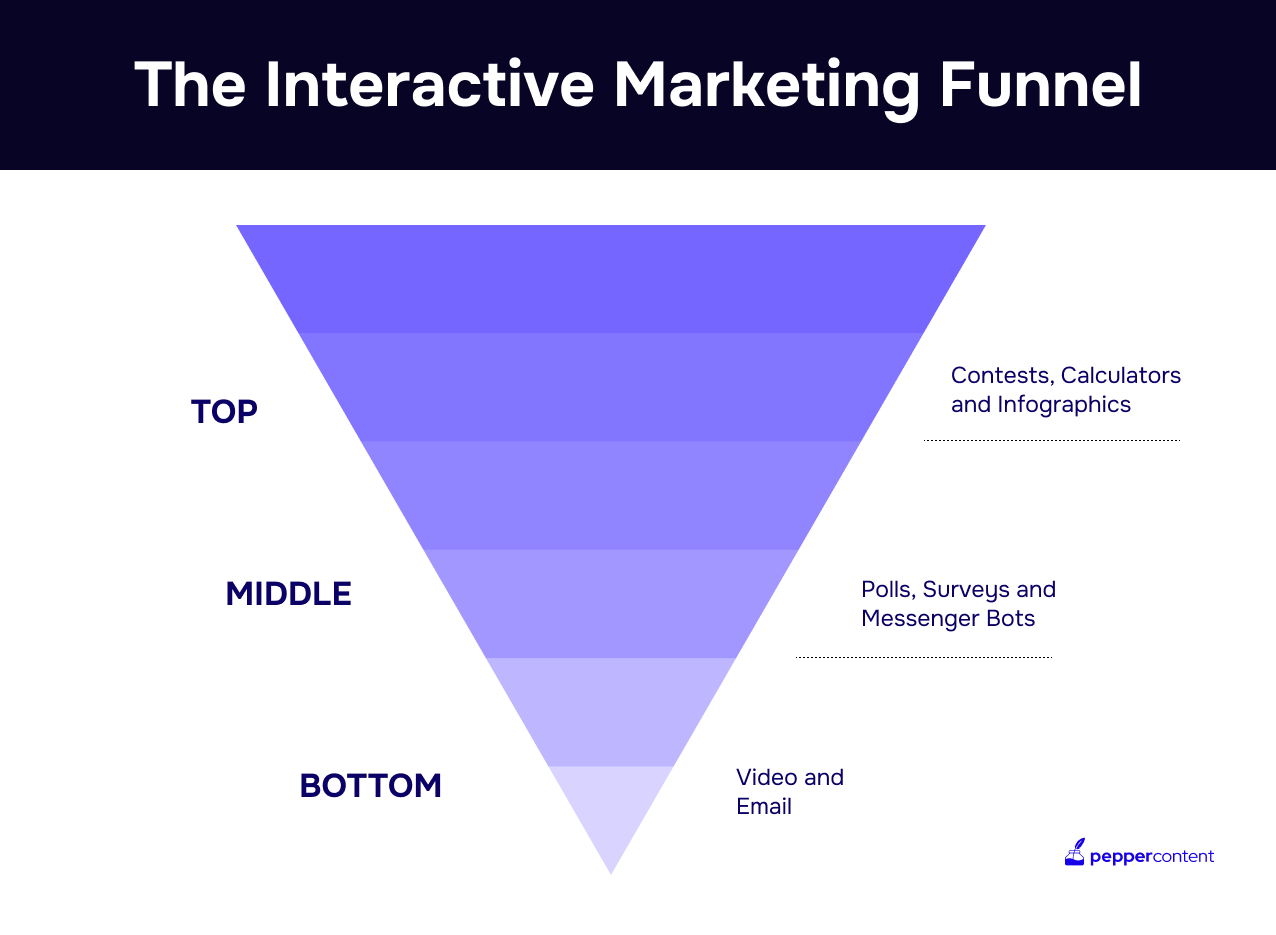
Measuring Success and ROI
To truly understand the impact of your interactive content campaigns, it’s crucial to measure success and return on investment (ROI). By tracking key metrics, you can assess the effectiveness of your efforts and make data-driven decisions to optimize future campaigns.
One important metric to consider is engagement rate, which measures how actively your audience interacts with your content. This includes actions such as clicks, shares, comments, and time spent on the page. By analyzing engagement rates, you can determine if your interactive content is resonating with your audience and capturing their attention.
Conversion rate is another vital metric to track. It measures the percentage of users who take a desired action after engaging with your content, such as signing up for a newsletter or making a purchase. By monitoring the conversion rate, you can evaluate the impact of your interactive content on driving desired actions and conversions.
Additionally, tracking the amount of time users spend interacting with your content provides valuable insights into its effectiveness. The longer users engage with your interactive content, the more likely they are to be genuinely interested in your brand and message.
So, if you’re looking to engage your audience, boost brand visibility, and drive results, it’s time to embrace the power of interactive content. By utilizing quizzes, AR experiences, interactive videos, and infographics, you can create memorable brand interactions that leave a lasting impact on your audience.
How to create interactive content? Get creative, experiment with different formats and techniques, and watch as your audience becomes more engaged, more loyal, and ultimately more likely to convert. Don’t miss out on this opportunity to revolutionize your marketing strategy with interactive content!
Latest Blogs
Learn how to rank on AI search engines like ChatGPT, Perplexity, and Gemini by optimizing your content for authority, structure, and relevance. Stay ahead in AI-driven search with this strategic guide.
Explore the best healthcare SEO services for your medical practice. Improve online visibility and effectively reach more patients in need of your services.
Discover top social media agencies specializing in banking solutions, enhancing financial services and driving engagement.
Get your hands on the latest news!
Similar Posts

Demand Generation
8 mins read
Mastering the Art of Building an Effective Content Marketing Funnel in 2024

Demand Generation
6 mins read
Fueling Demand Generation: How Buyer Personas Catapult Your Content Marketing Strategy

Demand Generation
8 mins read